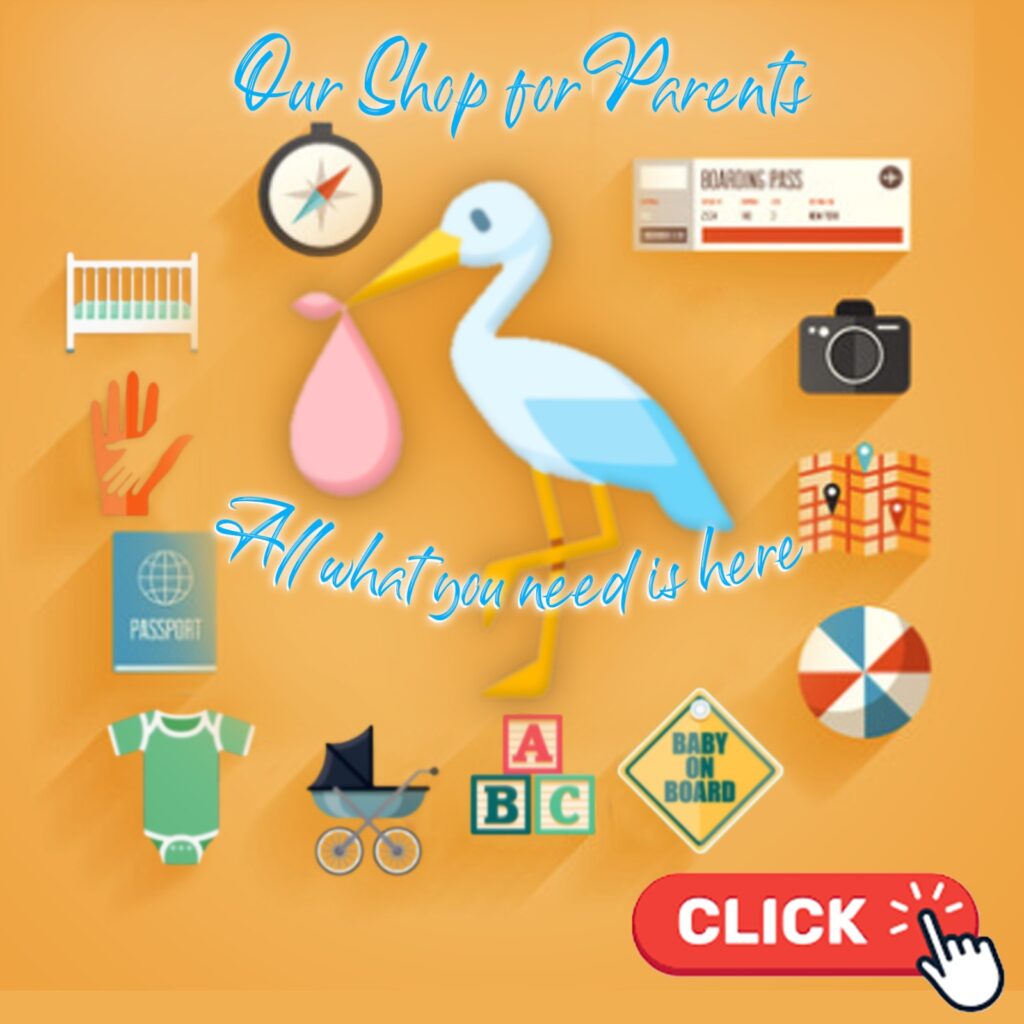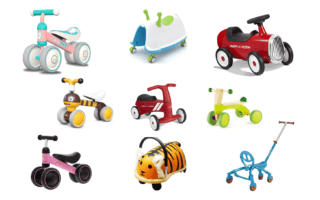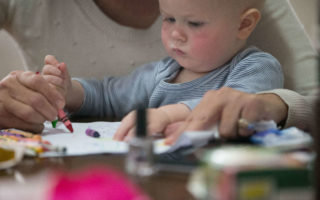Is raising child bilingual or trilingual for life even possible?
My first son is trilingual. His first words were at the age of 8 months. He started to speak Russian, Spanish, and English when he was two and a half years old. Currently, we are raising trilingual children with an aim that these three languages are their native by ten years of age.
“How to raise a trilingual child?” – this is one of the most common questions we are being asked on a daily basis. The fact is that we are a very international multilingual family living in various countries and moving around the world. We combine six nationalities and speak languages that belong to different language family groups, such as Spanish, Latvian, Mandarin Chinese, English, and Russian.
Being a certified Chinese teacher for second learners, education is in my heart and soul. All my games and activities are education oriented. And I am a strong supporter of two concepts:
- Learning is productive if it is designed through a game and constant engagement.
Check how we taught our kids to swim underwater naturally.
- The best way to teach a language is through reading books.
That’s right. My theory of successful language learning and teaching methods that I apply to my own kids and little students imply books, various speech activities and lots of talking.
Note: I do not support screen time and feel this is unnecessary until a child is over 5-6 years of age. But we have movie sessions. Please see details on how we manage it under the section “Screen-free environment”.
Let’s understand how we are raising a multilingual child, what tools we use and what to avoid.
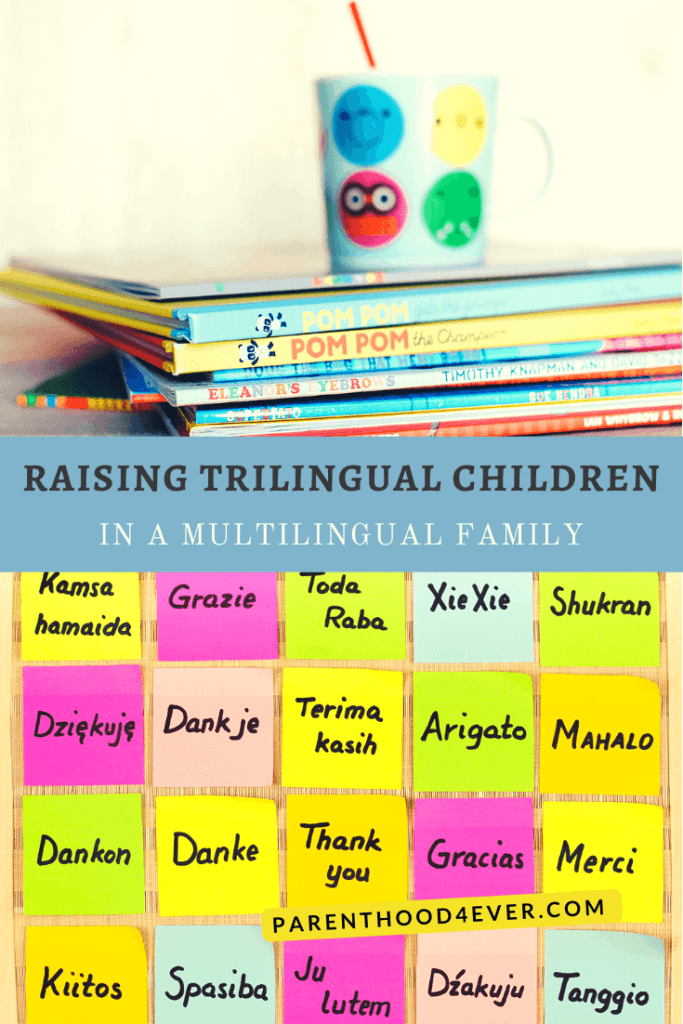
Teach your child languages from birth up to 10 years of age
First things first, let’s take a look at how our brain develops and how we assimilate learning through life. Once we understand how things work, we know the actual reason why we work so hard to achieve the goals. Do not underestimate yourself, teaching babies is a very hard work and requires your attention and presence. Basics are the foundation, and it takes time. Therefore, anything you do to reach long-term goals, requires lots of patience and should be a part of your routine. It also needs to come out very naturally, so children do not feel extra pressure.
Remember: babies born pure and blank in a way that only you are the person who sets ground rules. Their first years of life will depend entirely on you.
The study reveals that it is best to start by age ten if you want to achieve the grammatical fluency of a native speaker.
Thanks to our brain, the most information that a human being can receive happens until three to fours years of age. At the age of ten, we tend to lose over a half of neuron cells that we did not use in the first years of life. This includes some abilities to perform some jobs. For example, if a child lived in one typical environment surrounded by one human race for over 10 years, e.g. White race, he would have a problem to differentiate faces of Black or Asian races. On the contrary, Asians would find it hard to find differences in Black or White peoples’ faces.
Can this ability of reading faces be acquired at a later stage? Yes, absolutely. As an example, I lived in a very closed environment for 20 years. Then I moved to China and lived there for almost eight years travelling the entire Asia. I now can tell who belongs to what nationality.
Similarly, new languages can be acquired later on. BUT!
- They will never be your first language.
- They will never be acquired naturally.
Your brain works differently in adulthood. So, instead of acquiring a language naturally, you would need to learn grammar and enhance your vocabulary by learning things by heart.
This also means you will need to find
- sufficient time to learn a new language;
- enough time to practice it daily;
- great level of focus and concentration.
Unfortunately, everything you acquire after 10 to 12 years of age can be lost if you do not practice it. This is why it is important to do sports, play musical instruments, or learn languages from birth. Your child’s brain neuron cells, including physical muscle memory, will absorb information naturally and keep this information for life.
Have you ever met a person who played piano in their childhood but haven’t practiced for a while? It is typical when a friend says: “Oh, I haven’t played it for years. Hmm…let’s see”. Then they sit down and start to play like they never stopped playing.
Or, have you seen a person in a very good physical shape, who tells you that they came out like this naturally? Well, ask them about their childhood. There is a great reason they did sports for a while when they were young.
Similarly, with languages.
IMPORTANT!
If you are a multilingual family and can teach by pure communication one or more languages from your children’s birth, then, these languages will be their native. It will be extremely hard to forget them, even if it happens that your children don’t practice it for a while in their adulthood. On the contrary, if they learn a new language at a secondary school, they will need to practice it daily, otherwise they run the risk of forgetting them.
How much time a person need to master a new skill
Raising trilingual children is a challenging task. Scientists have found that to master a new skill requires ten thousand hours. Have you ever heard that geniuses are not born, but made? Exactly! The secret of every success is in hard work, determination, enormous level of interest towards this skill and daily practice.
So, if you were to practice a new skill for three hours a day, you would need 3 333,33… days. This is about 9 years and 2 months, including weekends and holidays.
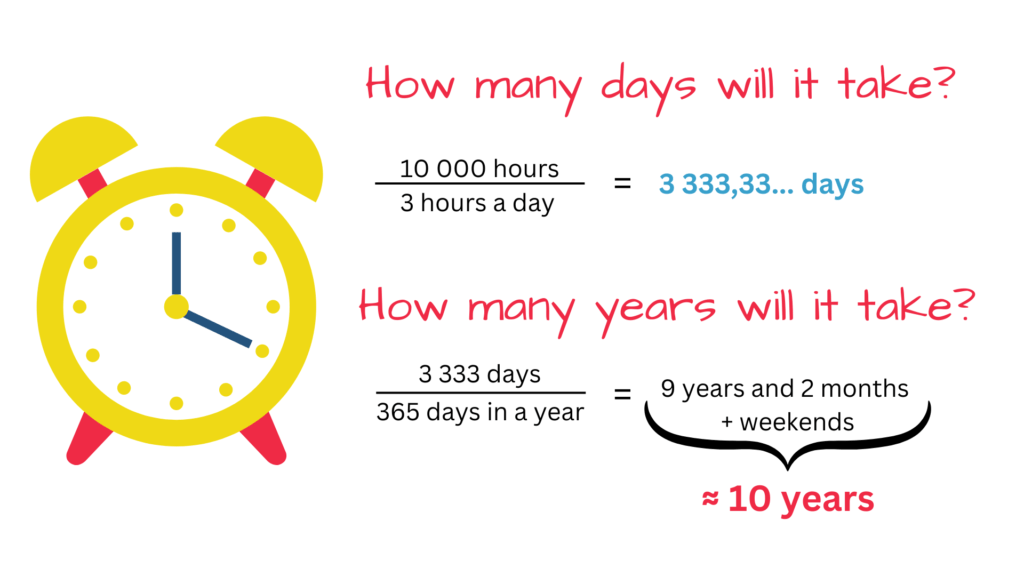
Now imagine how much time your baby practiced until he could roll over, sit, stand, walk, or even talk?! Babies practice their skills way more than three hours a day. They do it almost non-stop. This is why they need only a year to master these skills that we consider basics. However, these are the most crucial skills in our life.
Let’s just recap.
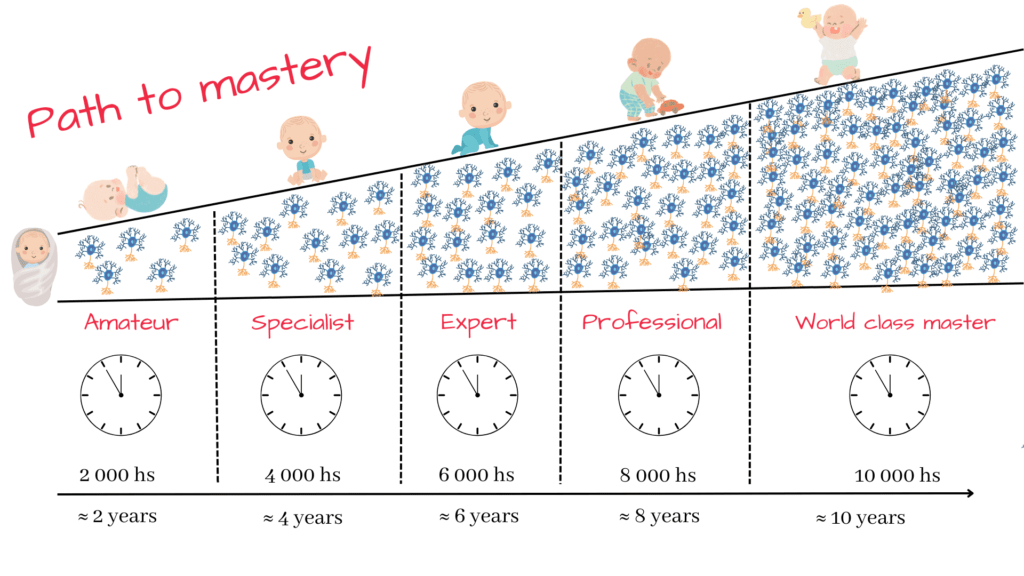
Acquiring new languages before ten years of age is no exception. If you have a multilingual family, this is the right time to pass them on to your children in a natural way.
Now let’s understand how to raise a trilingual child.
Key points for raising trilingual children
These tips also relate to bilingual parents raising bilingual children, or to a multilingual family raising a multilingual child.
Identification and use-of-the-only-language rule
First of all, identify yourself within one culture and one language. Then, realize that this language is the only one you will communicate with your children. Once you are clear that this is your communication language, your children also will be clear.
Important! Never use any other languages when talking to your kids!
By never I mean never, and this is the most important rule. If you do not use other languages when raising trilingual children, it will be abnormal for them to use other languages rather than the ones you already set. Even if it happens once, both you and your children will feel awkward.
Translate everything. Set an appropriate environment. Here are some live examples:
- Only read in your language. If there is a book in English but your spoken language is Spanish, translate this book into Spanish.
- Only watch movies in your spoken language. At our home, we have weekend movie nights. One week we watch a movie in Spanish and the other week – in Russian.
- Make friends with the same spoken language and arrange playdates.
- Find activities, games, theatres or shows in your spoken language.
What if my child speaks to me in a different language?
It’s up to you whether to accept it or not. Raising a trilingual child is not always easy. The most common scenario is when a child understands the language their parent speaks but responds in a preferable language. Solutions could be the following:
- Never respond. Wait until they speak your language.
- Get surprised.
- Let them feel that you don’t understand what they are talking about.
- Ask them to translate.
- Or in early stages if you see the child struggling and forgot the word, help them to remember it.
Translate simultaneously
Apart from translating all the books simultaneously, make sure your child also translates to you or your partner all conversations they have.
For example, when his dad and I played with Teo in one room, Teo’s dad didn’t understand a word because he didn’t speak my language. So, Teo used to translate to him what we were doing.
It led to the point that this is a norm for our son to speak simultaneously three languages being in one environment. For example, he speaks to me only in Russian, he then can ask his dad something in Spanish and revert to a teacher in English.
You may ask if it is a lot of pressure on a child? There is definitely more pressure, but the key is to make it happen naturally without pushing boundaries. No matter how hard it is, your child won’t know this. For him, it will be a norm because he won’t know the other way.

Constant talking and explaining
Get used to talking a lot. Non-stop talking and explaining from baby’s birth help to develop a couple of things:
- Early speech.
- Correct pronunciation.
Read a lot and always
My method of raising trilingual children and language learning is based on reading. I strongly believe that the more you read, the more you enhance your child’s vocabulary. Soon you will hear some words or phrases that you do not use in your own vocabulary, and soon you will realize they come from the books you read. Also, culture is a big deal. Reading helps to understand cultural aspects, jokes, riddles, songs, folklore, etc.
Read various things, such as but not limited to:
- stories,
- fairy tales,
- comics,
- enciclopedias, etc.
There is no better way to learn a language because while you read, your child looks at a static image and inevitably starts imagining the story, creating images in their head and playing with them. On the contrary, if you were to compare the progress with your child watching a cartoon, then cartoons have lots of images that change fast. This is why you may see a child being frozen by a TV. For a child at the age of 1 to 5, these are just a set of pictures. If you ask them to recite what they saw, it would be a very hard task for them.
Use additional resources
Use other resources that help to enhance vocabulary and aim to develop speech. This could be achieved with any toys you have at home.
- Make role plays with animal toys.
- Make role plays with a medical kit, building tools, shopping kit, etc.
- Create stories constructed from Lego blocks.
But you can also practice language with such activities as:
- Cards with riddles.
- Tongue twisters.
- Simple language exercises.
- Singing songs is huge.
- Rhymes, including counting rhymes.
- Language puzzles.
- Alphabet blocks.
- Cards with themed images.
- Special games that help to create words, and more.
Screen-free environment
As it has been mentioned above, I do not support screen time. Moreover, I believe screen time is unnecessary for kids under the age of five or even six. Is it inevitable in the 21st century for our kids to watch TV? Perhaps. But I believe there are healthier ways of doing it. Let me share what we do.
- Set up movie nights every weekend and complement it with popcorn. After a movie we used to role-play the entire movie or we had a discussion.
- Watch short educational series about animals, planets, humans, etc. After watching it, discuss the episode with your child.
- Use as a reward occasionally.
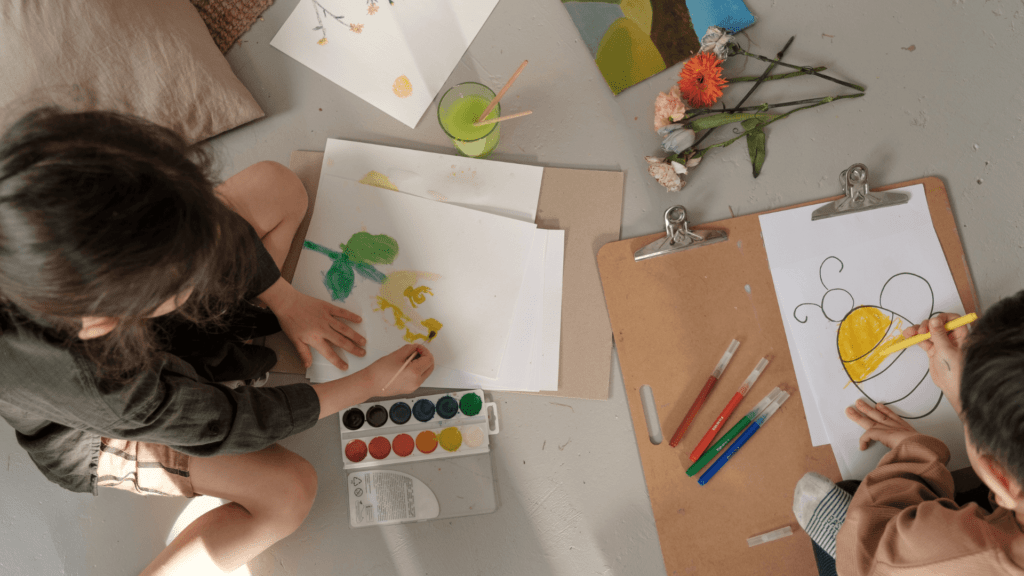
Myths to avoid
The more languages my children speak the later they start talking
Based on our experience, it isn’t true. I believe it depends on how much work you put towards your child to start speaking. Of course, it is purely individual too. Our child started to speak Russian fluently at the age of two and three months. Same with Spanish and English. All three were fluent by the age of two and a half.
It is important to notice your child’s speech development at the right time and start to speak and read to them even more.
It is true to say that in the beginning your child may experience difficulties separating all languages, so it is important to be patient. You may hear two or three languages in one sentence, or using wrong grammatical patterns mixing both languages, but it all should settle within the first two to three months.
My child lives in this country, so we need to teach him the language at home to avoid problems in school
This concept seems wrong. Children have an ability to acquire any skills naturally. It depends if you train them well.
You already have an environment. Rest assured, your child will learn this language at the nursery, school, or on the street in no time simply because he will have an urge to communicate with their peers.
If you follow this myth, you won’t be able to teach your child another language to make them bilingual or trilingual.
Remember: one person – one language.
It is too much pressure for a child
Children’s brains are way more resilient towards receiving new information. In fact, we have the most neurons at birth.
Babies have 100 billion brain cells but few connections, aka synapses, between these cells. It is your love, affection and closeness that help wire up the connections.
They don’t know what is a lot of pressure. Babies are born blank, you are the only one that sets rules and expectations. As a multilingual family, your main two tasks are:
- Make learning fun, effortless and natural.
What can be more natural than speaking language at home?
- Explain why you need it
Only in case if questions are asked.
Did you know?
Temporal lobe of the brain is responsible for producing all sorts of sounds which we hear. Many people know that the temporal lobe is responsible for music, but very few know that without this lobe we wouldn’t be able to learn any languages.
This is very hard work to differentiate sounds. I am sure you heard that singing to a newborn baby is extremely important. This is because while you sing lullabies, your baby’s neuron cells process these sounds and learn to understand different melodies.
And this also leads to a better, faster and easier way to learn languages.
We wish you success in raising trilingual children!
If you have any questions or you wish to share your story, just let us know in the comment below. We’d love to help, support, and learn from you.
IMPORTANT: We created the Family Store, especially for you. By clicking on the image below you can find anything from Newborn’s First Kit, Baby & Family Essentials, Kids Travel to Travel Gear. We hope you will find something valuable for your own adventures!
Our shop contains products from other companies that we love and use! Everything is based on our values of quality over quantity.
To get more support from parents and family travelers, join our Parenting Support Group.
And follow us on Instagram to know about our crazy expat life!
Also, check out:
Welcome to check out our best product selection for parents and babies, including traveling gear and resources here.
This post may contain affiliate links that we may or may not receive a small commission, at no extra cost to you. This helps to fund our blog but we never advertise for anything we don’t personally love or recommend. There is never any pressure to buy anything, we just like sharing things that make our life easier and help you find them if it is something you are looking for. Please, see our full disclosure here.














